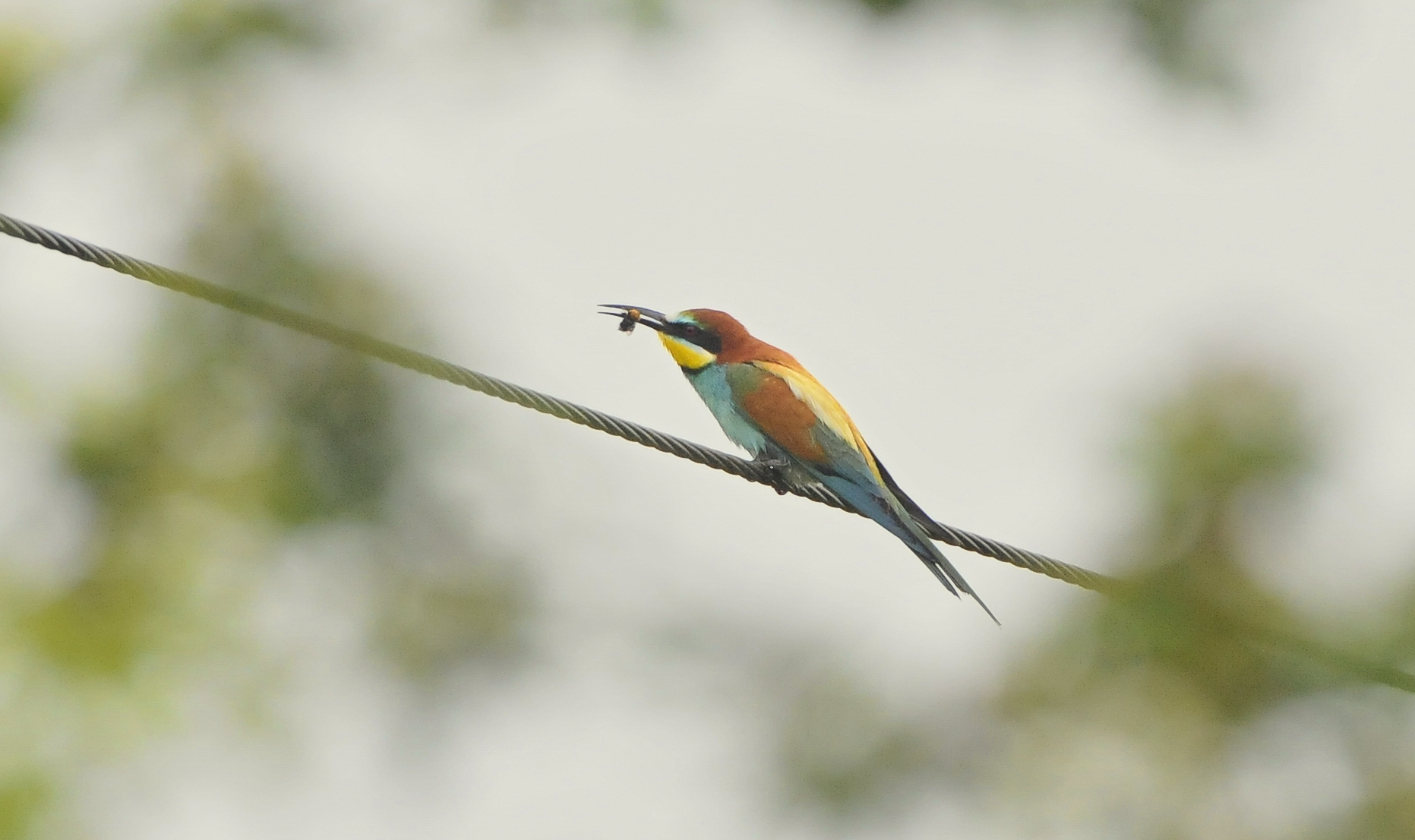
Rare bee-eaters right at home in Costa del Cromer: but it’s a red alert for global warming
Rare bee-eater chicks have hatched in a Norfolk quarry amid the UK’s first ever red warning for heat.
Having previously been rare visitors, breeding attempts by these brightly-coloured birds are increasing in the UK, with six recorded in the past 20 years.
Bee-eaters normally nest in southern Europe and northern Africa, and the expansion of their northern range is a warning that rising temperatures will become the norm without urgent action.
Eight rare bee-eaters took up residence near Trimingham, North Norfolk in early June and soon began excavating nest burrows. The RSPB and volunteers from a local bird group have been monitoring the site night and day, to ensure the birds have the best chance of safely raising their young.
Bee-eaters last nested in the UK in 2017, in Nottinghamshire, though the last successful fledging was on the Isle of Wight in 2014. The notable increase in nesting attempts in the past 20 years by a species typically found further south is a sign that our climate is heating rapidly.
The RSPB’s Director of Conservation, Katie-jo Luxton, said: “While it’s good news that that these chicks have hatched, this remains a very vivid reminder of the changes being wrought by our overheating planet. Bee-eaters are a species found commonly in the southern Mediterranean and northern Africa, and as our planet warms they – along with other species – are being pushed further north. The climate and nature crisis is well and truly upon us.
Like canaries down a coal mine, bee-eaters nesting in the UK are an early warning of what climate change has in store for us all. Hotter, drier summers and searing temperatures – as experienced in the UK this week – will become the norm if urgent action isn’t taken to curb greenhouse gas emissions. We urge the next prime minister to honour the commitment to reach net zero by 2050 and put nature’s recovery at the fore by making this a decade of action for climate and nature.”
About the size of a starling, bee-eaters are unmistakable with their claret-red backs, yellow throats and turquoise bellies. Bee-eaters raise their chicks communally, and single birds from a previous brood are likely to help out the two breeding pairs with duties like incubating and feeding. As well as various species of bee, they feed on dragonflies and other flying insects, which they catch in mid-air.
Around 15,000 people are thought to have visited the site, enjoying spectacular views of the rainbow-coloured birds, and many more have followed their progress via a live webcam.
Watch the live feed on YouTube here: https://youtu.be/AVVZz8jXPqI
The birds are expected to remain until the end of summer, after which they will fly to southern Africa for the winter as a family group.
Located to the east of the quarry, the car park and viewing area can be found in a large grass field off Gimingham Road at TG284384. Car parking costs £5 to cover site monitoring.
More information on the birds, the camera and visiting the site can be found here: www.rspb.org.uk/our-work/rspb-news/rspb-news-stories/buzz-as-rare-rainbow-birds-set-up-summer-home-in-norfolk/
ENDS
[registration_form]
Amazing how they can get it wrong! Cumbria was the last successful nesting but even better news was the bee hives placed in the quarry where they were nesting, produced honey. Sadly no hives were placed at the Nottingham breeding site where 3 pairs failed with young. If Bee-eaters ever become regular breeders, bee keepers will be a problem if not educated. The Cumbria success will help educate them.
The number of breeding attempts by bee-eaters in this country remains low and so for now may not be seen by itself as particularly persuasive evidence of climate change by ministers and others. It is worth pointing out therefore that the species has also undergone significant northward range extension in western Europe including in France, Switzerland and Germany and analysis has supported the contention that this is a response to climate change https://link.springer.com/article/10.1007/s10336-021-01867-z.
Of course there is also a wealth of other evidence that climate change is a clear and present danger and that our government and others around the world need to stop foot dragging and ensure we reach net zero as soon as possible.